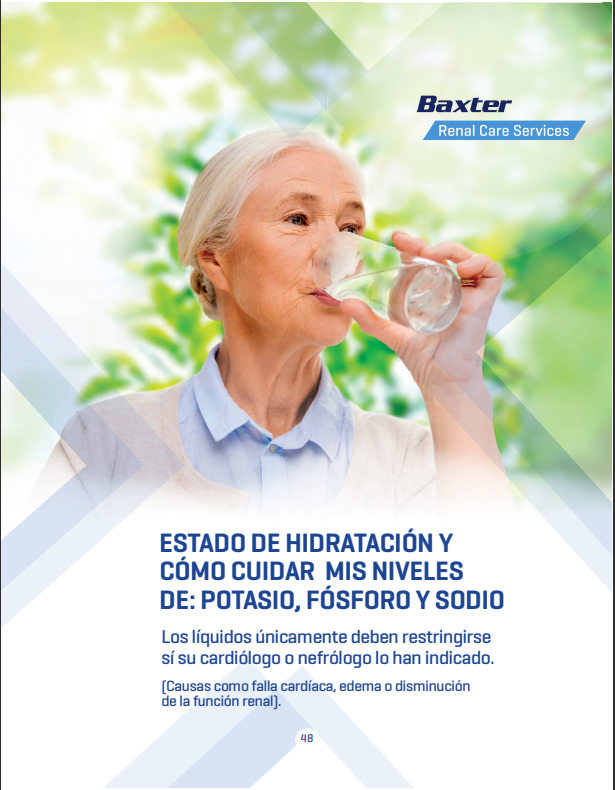Guide to living with Chronic Kidney Disease (CKD)
Baxter RCS offers patients personalized care with the latest technology related to Chronic Kidney Disease (CKD). Peritoneal dialysis, hemodialysis, kidney protection and more are some of our services, all so that patients live fully and in the best conditions.
The accompaniment is both face-to-face and digital. On the web, Baxter RCS has the Guide to living with Chronic Kidney Disease (CKD), with content and important information about kidney function, what CKD really is, what is the best treatment for each patient and how to stay healthy physically and psychologically in instances such as dialysis, among other issues. All this you can know by clicking on this link.

CHRONIC KIDNEY DISEASE
Perhaps you have never thought about it, but your kidneys do a very important job for your health. How do I know if my kidneys are not working right?
What are the causes and symptoms that can occur in the early stages of Chronic Kidney Disease?

HOW DOES DIABETES AFFECT MY BODY?
Diabetes is a disease that occurs when the body does not produce enough insulin or cannot use the insulin it does produce. How does diabetes affect my body? What does monitoring consist of?

WHAT IS HYPERTENSION?
Arterial hypertension is a chronic disease characterized by a continuous or sustained increase in blood pressure. What risks does it bring? Can it accelerate the progression of CKD Chronic Kidney Disease?

TREATMENT OPTIONS
What is dialysis? How does it work? How many types of dialysis are there? What is peritoneal dialysis, what is required to perform it and how does it affect my lifestyle? What is hemodialysis and kidney transplantation? What is conservative medical care or treatment?

HOW TO MAINTAIN A BALANCED DIET?
How to maintain a balanced diet and take care of kidney health? What are proteins, carbohydrates and fats and what are their functions? Some recommendations for consumption of proteins, carbohydrates and fats.

HYDRATION STATUS AND HOW TO TAKE CARE OF MY LEVELS OF: POTASSIUM, PHOSPHORUS AND SODIUM
Potassium, Phosphorus, Sodium, what are they and what functions do they fulfill? How to maintain healthy levels of Potassium, Phosphorus and Sodium? Some recommendations for consumption of Potassium, Phosphorus and Sodium.

MEDICINES THAT ARE PART OF KIDNEY DISEASE
Some medicines do the job that your kidneys can no longer do, while others protect your kidneys by keeping them from working too hard. What recommendations should I follow regarding my medications? What are the most common medications and what are they for?
Guide to living with Chronic Kidney Disease (CKD)
Baxter RCS offers patients personalized, state-of-the-art care related to Chronic Kidney Disease (CKD). Peritoneal dialysis, hemodialysis, nephroprotection and more are some of our services, all so that patients live fully and in the best conditions.
The accompaniment is both face-to-face and digital. On the web, Baxter RCS has the Guide to living with Chronic Kidney Disease (CKD), with content and important information about how the kidneys work, what CKD really is, what is the best treatment for each patient and how to stay healthy physically and psychologically in instances such as dialysis, among other issues. All this you can find out by clicking on this link.

